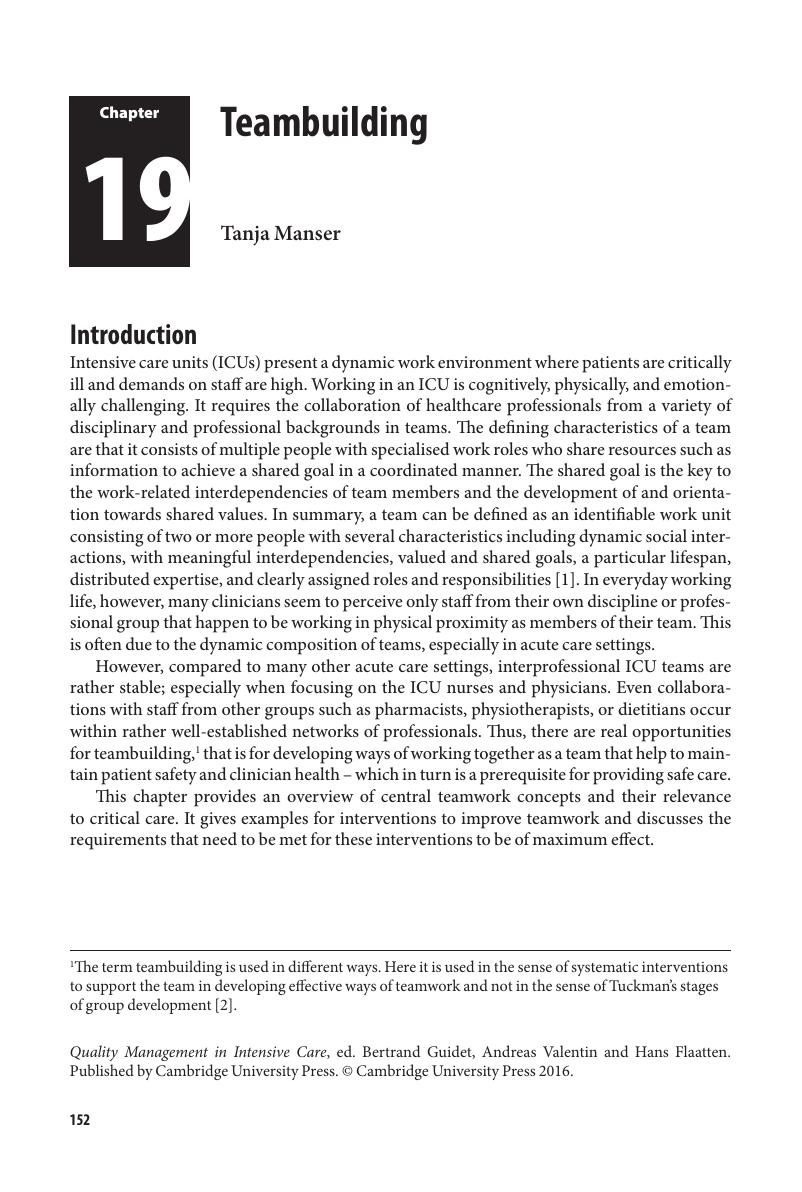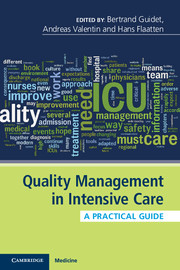Book contents
- Quality Management in Intensive CareA Practical Guide
- Quality Management in Intensive Care
- Copyright page
- Contents
- Contributors
- Introduction
- Section 1 Quality management of patient care
- Section 2 Quality management of the ICU
- 12 Tools to improve patient safety and adverse events
- 13 Clinical data management
- 14 Electronic ICU management systems
- 15 ICU staff
- 16 Severity scoring, improved care?
- 17 Implementation of evidence-based practice
- 18 Addressing barriers for change in clinical practice
- 19 Teambuilding
- 20 Conflict management in the intensive care unit
- 21 From polio to hospital-wide care
- 22 Patient and family satisfaction
- 23 Follow-up after intensive care
- 24 In situsmall-scale simulation
- Section 3 Quality management on the national (and international) level
- Epilogue
- Index
- References
19 - Teambuilding
from Section 2 - Quality management of the ICU
Published online by Cambridge University Press: 05 February 2016
- Quality Management in Intensive CareA Practical Guide
- Quality Management in Intensive Care
- Copyright page
- Contents
- Contributors
- Introduction
- Section 1 Quality management of patient care
- Section 2 Quality management of the ICU
- 12 Tools to improve patient safety and adverse events
- 13 Clinical data management
- 14 Electronic ICU management systems
- 15 ICU staff
- 16 Severity scoring, improved care?
- 17 Implementation of evidence-based practice
- 18 Addressing barriers for change in clinical practice
- 19 Teambuilding
- 20 Conflict management in the intensive care unit
- 21 From polio to hospital-wide care
- 22 Patient and family satisfaction
- 23 Follow-up after intensive care
- 24 In situsmall-scale simulation
- Section 3 Quality management on the national (and international) level
- Epilogue
- Index
- References
Summary

- Type
- Chapter
- Information
- Quality Management in Intensive CareA Practical Guide, pp. 152 - 159Publisher: Cambridge University PressPrint publication year: 2016



